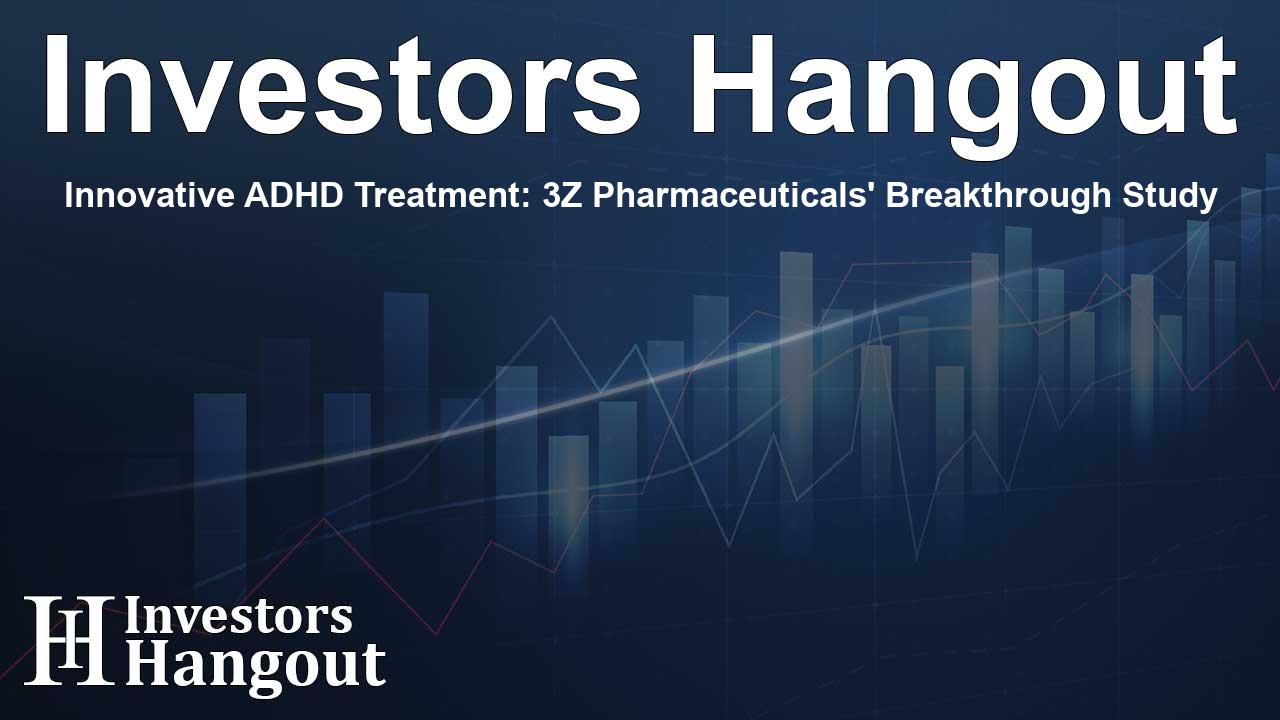Innovative ADHD Treatment: 3Z Pharmaceuticals' Breakthrough Study

3Z Pharmaceuticals Pioneers Breakthrough in ADHD Therapy
3Z Pharmaceuticals is making waves in the neuropharmacology realm with its recent research that puts the spotlight on a unique approach to treating ADHD. A study published in Neuropsychopharmacology showcases amlodipine, an L-type calcium channel blocker (LTCC), as a groundbreaking candidate for ADHD therapy. This work not only highlights the company's commitment to innovative solutions but also reveals its advanced drug discovery capabilities.
ADHD and Treatment Challenges
ADHD, a common neurodevelopmental disorder, poses significant challenges for those affected and their families. Current treatment options primarily include stimulant medications, such as methylphenidate; while effective for some, these medications come with a range of side effects and potential for abuse. With this in mind, 3Z Pharmaceuticals is keenly focused on creating new, non-stimulant therapies to fill the gaps in existing ADHD treatment frameworks.
Key Findings of the Study
The recently published study conducted by 3Z teams employs a detailed approach that integrates various methodologies, including cross-species behavioral assays and human genetic data analysis. Here are significant highlights from their findings:
Behavioral Improvements
The results show that amlodipine significantly mitigates hyperactivity in animal models. In particular, its effects were tested on Spontaneously Hypertensive Rats and zebrafish models demonstrating ADHD symptoms. This cross-species validation offers compelling evidence of its potential efficacy.
Impact on Neural Performance
Unexpected results from traditional penetration studies reveal that amlodipine effectively crosses the blood-brain barrier. This finding challenges previous assumptions and suggests that it may have a meaningful impact on neuronal activity within the brain, making it a valuable candidate for ADHD treatment.
Genetic Insights
Further analysis through Mendelian Randomization uncovered significant correlations between genetic variations in LTCC genes and ADHD susceptibility. The genes CACNA1C, CACNB1, and CACNA2D3, which amlodipine targets, underline its potential role in ADHD therapies.
Clinical Implications
Using data from the UK Biobank, researchers assessed polygenic risk factors and found that individuals who had a higher genetic predisposition to ADHD, yet were on amlodipine, showed marked reductions in ADHD symptoms. Crucially, these improvements occurred independent of the drug's typical use for hypertension.
Expert Commentary and Future Directions
Dr. Karl Karlsson, the CEO of 3Z Pharmaceuticals and a noted neuroscientist, expressed his excitement regarding the implications of this study: "The research we’ve conducted not only establishes amlodipine as a promising non-stimulant treatment for ADHD but also demonstrates the efficacy of our innovative high-throughput screening techniques in genetic modeling. This is a pivotal moment for us in enhancing therapeutic options available for ADHD patients."
With promising results in hand, 3Z Pharmaceuticals is now advancing towards clinical development of this novel therapeutic approach. They aim to harness the established safety profile of amlodipine while capitalizing on the well-defined mechanisms by which it operates within the nervous system.
Contact and Further Information
For interested parties seeking more information regarding this research or potential partnership opportunities, they can reach out to 3Z Pharmaceuticals directly. Dr. Karl Ægir Karlson, the CEO, is available at:
Name: Karl Ægir Karlson
Title: CEO
3Z Pharmaceuticals
Phone: +354-8256467
Frequently Asked Questions
What is the significance of 3Z Pharmaceuticals' recent study?
The study positions amlodipine as a potential non-stimulant therapy for ADHD, showcasing its effectiveness through various advanced methodologies.
How does amlodipine compare with current ADHD treatments?
Unlike stimulant medications, amlodipine aims to provide a safer alternative with reduced side effects while effectively managing ADHD symptoms.
What are the key findings regarding amlodipine's effectiveness?
The study demonstrated significant behavioral improvements in ADHD models, established genetic connections, and confirmed brain penetration, signaling its therapeutic potential.
How is amlodipine applied in ADHD therapy?
Amlodipine’s therapeutic application hinges on its ability to modify neural activations, which may help in reducing hyperactive behaviors in ADHD patients.
What are the next steps for 3Z Pharmaceuticals?
3Z is advancing this research into clinical development, seeking to leverage amlodipine's safety profile for broader ADHD treatment applications.
About The Author
Contact Lucas Young privately here. Or send an email with ATTN: Lucas Young as the subject to contact@investorshangout.com.
About Investors Hangout
Investors Hangout is a leading online stock forum for financial discussion and learning, offering a wide range of free tools and resources. It draws in traders of all levels, who exchange market knowledge, investigate trading tactics, and keep an eye on industry developments in real time. Featuring financial articles, stock message boards, quotes, charts, company profiles, and live news updates. Through cooperative learning and a wealth of informational resources, it helps users from novices creating their first portfolios to experts honing their techniques. Join Investors Hangout today: https://investorshangout.com/
The content of this article is based on factual, publicly available information and does not represent legal, financial, or investment advice. Investors Hangout does not offer financial advice, and the author is not a licensed financial advisor. Consult a qualified advisor before making any financial or investment decisions based on this article. This article should not be considered advice to purchase, sell, or hold any securities or other investments. If any of the material provided here is inaccurate, please contact us for corrections.
